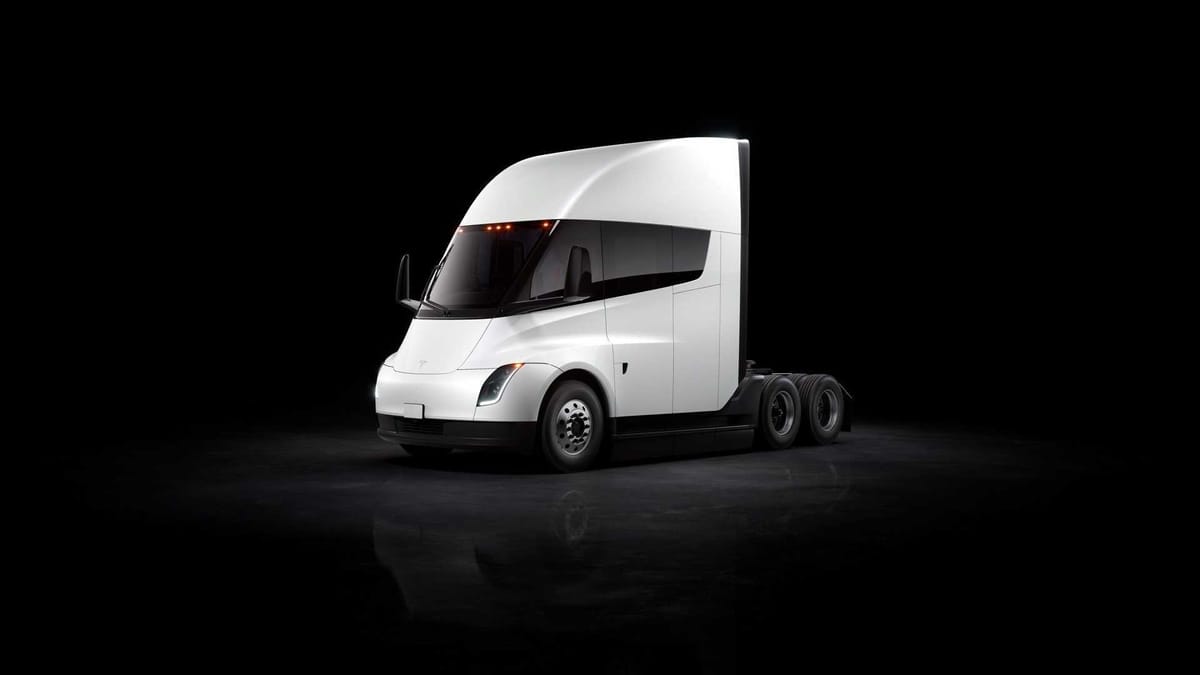Tesla Semi Deliveries Ramp Up - Impact on the Electric Truck Market

After years of anticipation, the Tesla Semi is finally hitting the roads in significant numbers. While initial deliveries began in late 2022, 2024 has seen a marked increase in production and distribution, signaling a potential turning point in the electric truck market. This article delves into the recent surge in Tesla Semi deliveries, analyzing its implications for the trucking industry and the broader shift towards sustainable transportation.
Production Gains and Delivery Numbers
Tesla remained tight-lipped about exact Semi production numbers for a considerable time. However, recent reports from industry analysts and data gathered from Tesla's battery production facilities suggest a significant ramp-up in manufacturing. Estimates indicate that Tesla could be producing hundreds of Semis per month, with a projected output exceeding 10,000 units by the end of 2024.
Several factors contribute to this production increase. Tesla's Nevada Gigafactory, a key site for battery cell manufacturing, has undergone expansions specifically geared towards Semi production. Additionally, Tesla has streamlined its manufacturing processes, leveraging the expertise gained from its experience in electric car production.
This production ramp-up directly translates to increased deliveries. Major companies like PepsiCo, Walmart, and UPS, who placed early reservations for the Tesla Semi, have started integrating these electric trucks into their fleets. Visuals of Tesla Semis making deliveries have become increasingly common, generating significant buzz and further solidifying the truck's presence in the market.
Impact and Implications
The increasing prevalence of the Tesla Semi signifies more than just the adoption of a new vehicle; it represents a potential paradigm shift in the trucking industry. Here's a closer look at the potential impact:
1. Environmental Benefits and Fuel Cost Savings:
The Tesla Semi boasts a significantly lower carbon footprint compared to its diesel counterparts. Its electric powertrain eliminates tailpipe emissions, contributing to cleaner air quality, especially in urban areas with high truck traffic. Furthermore, the cost-effectiveness of electricity compared to diesel fuel translates into substantial operational savings for companies, making the transition to electric an attractive financial decision.
2. Technological Advancements and Driver Experience:
The Tesla Semi is equipped with advanced technology, including Tesla's Autopilot system, enhancing safety features and potentially revolutionizing long-haul trucking. Features like lane keeping assist, automatic emergency braking, and adaptive cruise control improve driver safety and reduce the risk of accidents. Additionally, the Semi's central driving position and spacious cabin prioritize driver comfort, potentially attracting new talent to the trucking industry.
3. Competition and Market Growth:
Tesla's entry into the electric truck market has galvanized competition. Established truck manufacturers are now accelerating their own electric truck development programs to remain competitive. This surge in innovation and investment is expected to drive down costs and increase the variety of electric truck options available, ultimately benefiting consumers and accelerating the transition to sustainable transportation.
Challenges and Future Outlook
Despite the positive outlook, challenges remain. The availability of charging infrastructure specifically designed for heavy-duty electric vehicles is crucial for the widespread adoption of electric trucks. Building out a robust and accessible charging network is essential, requiring collaboration between governments, charging companies, and truck manufacturers.
The initial cost of electric trucks, including the Tesla Semi, is higher than traditional diesel trucks. However, government incentives and subsidies, coupled with long-term fuel cost savings, are expected to bridge this price gap over time, making electric trucks a more financially viable option.
Concluding Thoughts
The increased production and delivery of the Tesla Semi mark a significant step forward for electric trucks. As production continues to scale and charging infrastructure improves, the Tesla Semi, along with other emerging electric truck models, has the potential to revolutionize the trucking industry. This shift towards sustainable transportation not only promises environmental benefits but also offers economic advantages and technological advancements that could redefine the future of trucking.















Comments ()